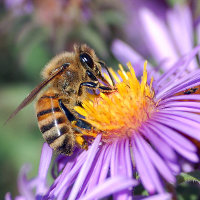Longflower Beeblossom (Oenothera filiformis (Small) W.L. Wagner & Hoch)
Also known as Gaura longiflora Spach.
Gaura longiflora Spach is used by the USDA to refer to a narrower set of populations; we have not yet examined whether this is the result of a taxonomic merge or merely a difference in reported ranges.
Page contents
↑Range - Expand
| Legend | Color |
| Native | |
| Expanded or Not Present | |
| Introduced or Not Present | |
| Introduced | |
| Native or Not Present | |
| Native or Expanded | |
| Native or Introduced | |
| Expanded |
This tentative map is based on our own research. It may have limited data on Canada and/or Mexico, and there is some subjectivity in our assignment of plants as introduced vs. expanded. Read more in this blog post.
Although this plant occurs somewhere in each of these regions, it may only occur in a small part of some or all of them.
This species now occurs in a few areas outside its native range, probably originating as garden escapes. Because there is a large gap where this species does not occur, we have marked the populations on the East Coast as Introduced and the ones in the Midwest as Expanded. This species also occurs in Ontario, where it is not native, but we have yet to build this portion of its range map.
↑Links & External Resources
• Oenothera filiformis (longflower beeblossom) | USDA PLANTS Database (About This Site)
• Oenothera filiformis | Go Botany (About This Site)
• Longflower Beeblossom | iNaturalist (About This Site)
• Oenothera filiformis | Biota of North America Project (BONAP) (About This Site)
• Oenothera filiformis (Small) W.L.Wagner & Hoch | Plants of the World Online (POWO) (About This Site)
• Oenothera filiformis | Flora of North America (About This Site)


